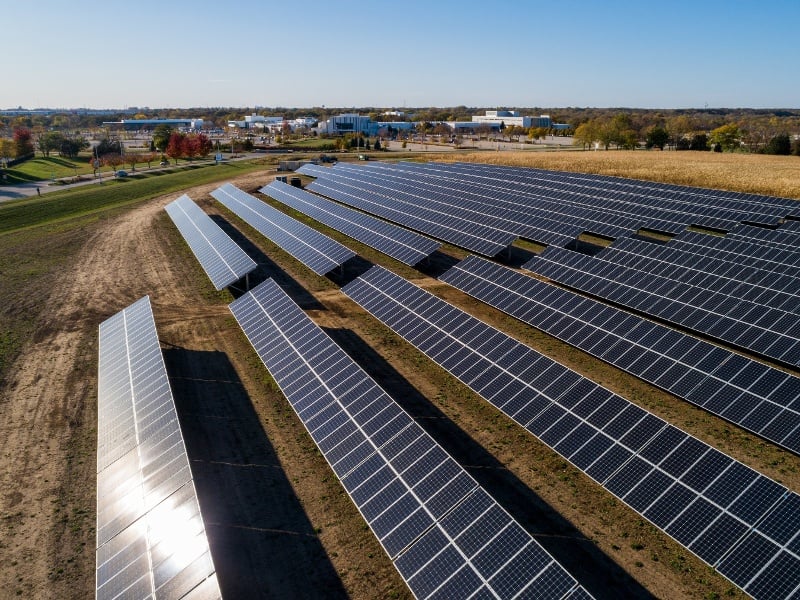NEW: We Made the List: America's Top 100 Most Loved Placed to Work
CEJA Grows Renewables and Social Equality in Illinois
October 17, 2022

The Climate and Equitable Jobs Act (CEJA) raised the bar for Illinois’ electrical generation, setting a new goal for renewable energy to represent 40% of the energy generated by 2030, 50% by 2040, and 100% from carbon-free sources by 2050. To fund this increased renewable generation demand, CEJA jacked up Renewable Portfolio Standard (RPS) compliance obligations; such that Illinois’ utility providers – Ameren Illinois Company (Ameren), Commonwealth Edison Company (ComEd), and MidAmerican Energy Company (MidAmerican) – must significantly increase the number of Renewable Energy Credits (RECs) that they procure from new renewable energy generation projects in both the short- and long-term horizons.
In July and August 2022, the state of Illinois continued its push to achieve 100% renewable energy by 2050 by approving finalized rules and programs that were established under CEJA, as well as two new incentive tariffs. Here we review Illinois’ comprehensive clean energy legislation and how it ties the state's renewable energy ambitions to its vision for an equitable job market.
Understanding The Project Incentives
As energy capacity is lost from aging coal and gas plants, CEJA is spurring robust economic growth while incentivizing the construction of cleaner, cheaper energy resources. Ameren and ComEd have already approved tariffs that incentivize the construction of both solar and energy storage projects across Illinois.
In accordance with these new tariffs, behind the meter solar projects and community solar projects are each eligible for rebates of $250 per kW, and projects developing energy storage capacity are also now eligible for a rebate of $250 per kWh. For example, with this new rebate, an average commercial client with roughly 72,000 square feet could potentially save $85K-$90K annually, reducing overall project costs by 15-25%.
Clean Energy For All
In order to reach these ambitious goals, Illinois is creating a Green Bank for financing clean energy projects, and founding a Jobs and Environmental Justice Grant Program with the strict purpose of providing seed capital for disadvantaged businesses.
Additionally, CEJA outlines how the state will expand its low-income solar program, Illinois Solar for All (ILSFA), with a dedicated $70 million now available each year. This program is designed to provide solar to low-income customers and critical need facilities, such as non-profits and public facilities, at no upfront cost and with mandatory energy savings. ILFSA’s goal is to achieve at least 25 percent of program incentives to be utilized in environmental justice communities.
The state has created even more incentives for building solar projects at public schools, community-driven solar facilities, and Equitable Eligible Contractors aimed at benefiting disadvantaged businesses in the renewable energy sector.
Take Advantage of this Opportunity To Do Good
With this slew of positive legislation from Illinois – and also, the Inflation Reduction Act (IRA) – now is the time for your business to capitalize on investing in lasting energy savings that will serve to benefit your business and the communities of Illinois.
Don’t forget to submit your applications to Ameren in early 2023, and be on the lookout for upcoming announcements regarding ComEd’s application opening. Keep informed on the latest developments in the solar industry by following our newsletter. And if you have any questions, or are interested in learning how much you could save on your next solar project in Illinois, contact the team at Pivot Energy today.







